Have you ever wondered why some people seem to cruise through life a bit easily while others struggle despite their hard work and best intentions? Is it luck, fate, or some cosmic lottery?
Why are some people naturally blessed with attracting healthy relationships, while others face obstacles one after another?
Well, in Hinduism, there’s a deeper, more precise explanation, and it’s called Karma.
However, Karma in Hinduism is more than a cause and effect. In this article, I will break down Karma in Hinduism as simply and as clearly as I can. Let’s begin with the very foundation by understanding the meaning of the word “Karma”.
- Karma Meaning in Hinduism
- 3 Types of Karma in Hinduism
- How Karma Works in Hinduism
- Karma and reincarnation in Hinduism
- Karmic Debt in Hinduism
- Law of Karma in Hinduism
- Who is the Hindu God of Karma?
- Can Bad Karma Be Erased in Hinduism?
- How Long Will Karma Last?
- Does Karma Punish Those Who Hurt Others?
- Is Karma Hindu or Buddhist?
- How to Get Good Karma in Hinduism
- How to See Karma in Hinduism
- Symbol of Karma in Hinduism
- Frequently Asked Questions
Karma Meaning in Hinduism
The karma meaning in Hinduism comes from the Sanskrit root “kri” which means “to do” or “to act.”
So, Karma literally means action. Not just physical action, but also your thoughts and intentions.
Thoughts? What do you mean?
Yes, in Hinduism, even the silent jealousy (negative karma) or the secret compassion (positive karma) generates karma.
Karma is not just a moral scoreboard; it’s a mirror of your consciousness.
Before exploring it more deeply, let’s understand the different types of Karma in Hinduism.
3 Types of Karma in Hinduism
The 3 types of Karma in Hinduism: sanchita karma, prarabdha karma, and agami karma are the most well-known forms of Karma.
However, a fourth one, known as Kriyamana Karma, is also deeply rooted in the scriptures, and we shall not overlook it.
Here’s the breakdown:
- Sanchita Karma – Sanchita Karma is the karma that you have accumulated in all your past lives. This is like your collection of karma from all your past lives. In technological terms, this is your database of karma with every entry of your every single past life. If you have 100 past lives, Sanchita is the accumulated total karma of all 100 past lives.
- Prarabdha Karma – From that Sanchit, the portion of past karma that is given to you in this life is known as Prarabhda Karma.
- Kriyamana Karma – The karma you’re creating right now through your present actions.
- Agami Karma – Agami Karma is the future Karma resulting from present actions (Kriyamana Karma). You may experience Agami Karma in this life, but usually you will experience it in your next life.
How Karma Works in Hinduism
Earlier, I mentioned that Karma in Hinduism is more than cause and effect.
Yes, the idea of “what goes around comes around” applies here too, but not literally.
Because in Sanatana Dharma, the consequences of your actions can unfold now, later, or usually in another birth.
Let’s understand this better with an example of a relationship & marriage.
Examples of Karma in Hinduism
Let us suppose that in many of your past lives, you weren’t devoted, committed, and loyal to your spouse. You cheated on her, harmed her, and avoided your husband’s responsibility, leading to bad sanchita karma around your relationship and marriage.
Now, prarabdha karma, karma allocated for this life from your sanchita karma, manifests as difficulty in finding, maintaining a healthy relationship, or suffering in a relationship & marriage.
Here, the goal of bad prarabdha isn’t to make you suffer but rather to teach you a lesson.
Let’s say you figured it out that you should live in alignment with dharma, and start being loyal, committed, and devoted to your spouse (not from the place of fear but rather from the place of dharma). And you do it throughout your lifetime. That prarabdha gets dissolved as you have learned the lesson.
As a result, your suffering lessens, and by being loyal, committed, and devoted from a place of righteousness, you are also creating a good agami karma which reaps in your future life as attracting healthy relationships and a devoted spouse.
Karma and reincarnation in Hinduism
You have probably understood now that the concept of rebirth in Hinduism isn’t random, but deeply rooted in the foundations of Hinduism: Karma.
Your Karma gives you rebirth until you hold the karmic debt. More on this later.
Your Karma shapes where you’re born, who you’re born to, what you’re good at, and your life struggles in the rebirth.
If you have engaged in charity, donations, or acted selflessly and contributed to the welfare of society, you bring a good prarabdha karma in the upcoming rebirths related to earning money, gaining social networks.
You might be born into a wealthy family, or when you do your hard work and apply your purushartha (free will), you will face considerably fewer blocks and invite more opportunities, because you have a good prarabdha karma related to it, and vice versa.
Karmic Debt in Hinduism
I earlier mentioned, “Your Karma gives you rebirth until you hold the Karmic debt.”
Karmic debt doesn’t only mean negative; Karmic debt is also positive.
As you know, debt must be paid. What you sow, you will reap.
Lord Krishna in the Bhagavad Gita says that any action done without expectations to bear fruit result in neutral Karma.
In the Bhagavad Gita, Lord Krishna says:
Verse:
कर्मण्येवाधिकारस्ते मा फलेषु कदाचन ।
मा कर्मफलहेतुर्भूर्मा ते सङ्गोऽस्त्वकर्मणि ॥
Transliteration:
karmaṇy-evādhikāras te mā phaleṣu kadācana
mā karma-phala-hetur bhūr mā te saṅgo ‘stvakarmaṇi
Meaning:
You have a right to perform your actions, but not to the fruits. Don’t be attached to results. And don’t get attached to inaction either. (Bhagavad Gita 2.47)
This means: act in alignment with dharma (righteousness, for lack of a better word), surrender the outcome, and keep moving. This neutralizes your Karma and erases a lot of your negative karma.
And we already know what leads to negative karma and negative karmic debt. So what is a positive karmic debt?
If you have done any positive actions and always had an expectation out of it, that leads to positive karmic debt, and yes, you will be born again to reap the result.
Let’s say your prarabdha was not that good in terms of wealth. You started to engage in massive charity, donations, and every time you did it, you told me I am not doing this with no expectation, but rather, I am doing this to gain wealth.
Now you have done a good kriyaman karma, but you are highly unlikely to earn wealth in that very life. Because your prarabdha was to learn the lessons, you learned them. Had you not learned it, you would have been suffering from wealth, to make you understand that while you enjoy your material wealth, you should also contribute to the poor, to society.
Here, you have understood it, but your prarabdha was mainly to understand and dissolve. The negative prarabdha is dissolved; however, to reap the benefits, you will have to wait for the next life, creating a positive karmic debt.
Hence, the law of karma is not punishment or reward, but a reflection of your actions you have done.
Law of Karma in Hinduism
The law of karma in Hinduism is not about a specific punishment or reward, but a reflection of your actions that you have done throughout all the lives you have lived.
You helped someone selflessly with no expectations in return? That’s Karma. Do you choose to take advantage of others’ weaknesses? Karma again.
The first will result in good karma, while the latter will result in bad karma.
Who is the Hindu God of Karma?
There is no god in Hinduism that directly governs Karma, technically.
However, symbolically, God Yama, the god of death, oversees Karma. His divine scribe, Chitragupta, keeps the cosmic record of all actions done by that soul throughout their different lives. Nothing gets erased, and every action of yours is stored there.
God Yama is not the judge and jury, but a symbol to oversee the process of recording.
Can Bad Karma Be Erased in Hinduism?
Yes, totally.
As we discussed, Karma is there to teach a lesson, to reflect something. Once you learn, live, breathe that lesson dharmically, the prarabdha gets dissolved.
Hence, erasing bad karma is not about finding a spiritual loophole or taking a shortcut; it’s about living, breathing, and becoming the kind of person who starts to live dharmically, resulting in naturally erasing the bad karma.
How Long Will Karma Last?
The answer is two-fold. Firstly, how long karma lasts depends on how deeply it’s embedded in your sanchita karma and consciousness.
Secondly, how much effort (through free will) you put into implementing the lessons – being aligned with dharma (righteousness, for lack of better words).
Some karma is light and burns off quickly if you’re quick to be aware of your negative tendencies and lessons to learn. Some is sticky, entangled with ego, delusion, identity, and can last lifetimes (especially if you are failing to be aware or to recognize the lesson to be learned).
But karma is not forever. Once its energy is spent and the lesson learned, it gets dissolved.
Does Karma Punish Those Who Hurt Others?
Well, well, well, you know the answer by now.
Karma doesn’t punish. It reflects, it teaches, it wants you to learn the lesson, and to implement it.
If someone causes harm, they will face similar pain (not always immediately). Not because a god is angry, but because the universe teaches through mirroring.
Once you learn the lesson, the Karma is dissolved.
Is Karma Hindu or Buddhist?
Karma is shared by Hinduism, Buddhism, and Jainism.
It’s a foundational concept in all three traditions, but they each have a slightly different philosophical take on it:
| Hinduism | Actions affect your eternal soul (atman) and future rebirths. | It’s tied to an eternal self and the goal of moksha (liberation). |
| Buddhism | Intentional actions (mental, verbal, and physical) drive the cycle of rebirth (samsara). | It works even without an eternal self (anatta). Liberation comes from extinguishing desire. |
| Jainism | Karma is a literal substance (a particle) that sticks to the soul. | Liberation (moksha) is achieved by shedding these karmic particles through strict ethics. |
How to Get Good Karma in Hinduism
Say the truth even if it can be easy to lie, act selflessly, be kind, be honest even when no one’s watching, let go of the ego, engage in charity, be loyal, committed, devoted to your spouse, engage in seva of your dad, mom, elderly and needy people, contribute to the welfare of society, and so on.
Remember, earning good karma isn’t about earning points; it’s purity of being.
How to See Karma in Hinduism
In Hinduism, Jyotish (Vedic astrology) reveals the Karmic blueprints.
Your Janma Kundali (birth chart) reveals tendencies, potential outcomes, and how Karma unfolds in different areas of your life in different periods.
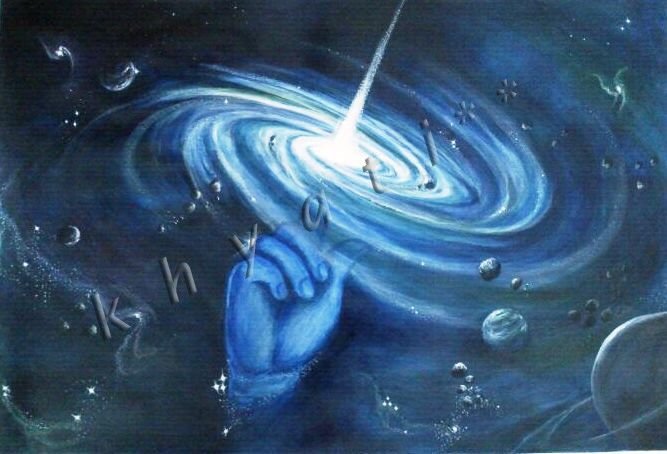
Symbol of Karma in Hinduism
There is no official symbol of Karma in Hinduism. However, the Sudarshana Chakra – Lord Vishnu’s divine discus is often represented as the symbol of Karma in Hinduism.
Frequently Asked Questions
What are the 7 laws of karma?
Cause and Effect, the law of creation, the law of humility, the law of growth, the law of responsibility, the law of connection, and the law of focus are the 7 laws of karma. They’re not officially Vedic but are modern distillations.
How long will karma last?
Karma lasts until the energy behind an action is neutralized or the lesson is learned. Some burn away quickly through awareness; others may follow you into future births if the lessons aren’t learned.
Is karma in the Bible?
Not directly, but a similar principle exists. Verses like “You reap what you sow” (Galatians 6:7) mirror karmic ideas. Christianity doesn’t use the same vocabulary, but the concept of moral consequence aligns closely with Hindu karmic philosophy.
What is the number 7 in karma?
Seven symbolizes spiritual awakening and completeness. In karmic teachings, it’s often used to structure the “7 laws of karma.” In Hindu tradition, 7 also appears frequently: 7 chakras, 7 heavens, 7 sages, indicating inner alignment and spiritual evolution.
What is the opposite of karma?
Some say it’s grace, divine forgiveness that overrides cause and effect. Others say surrendering the fruits of action. But in truth, there’s no real opposite of karma, only lessons waiting to be learned.
Does karma punish those who hurt others?
Karma doesn’t punish like a judge; it mirrors like a teacher. Harmful actions create suffering, not out of revenge, but to reveal what the soul hasn’t yet learned.
Karma in Hinduism is not about punishment or reward, but about cosmic balance, learning, and growth. Every thought, word, and action sets energy in motion, and that energy eventually finds its way back to us.
When we act with awareness, compassion, and integrity, we create harmony within and around us. Karma simply reflects who we are and what we choose to become, a reminder that life isn’t random, but beautifully responsive to the energy we put into it.
If you found this blog insightful, dive deeper into Hinduism’s timeless wisdom by exploring more articles on our website!
Read Next:
12 Houses of Astrology: What Each House Means in Your Life
When I first opened my birth chart, it felt like a wheel with 12 slices….
Gayatri Mantra in English – Lyrics, Meaning and How to Chant
Originating from the holy Rig Veda, the Gayatri Mantra is one of the most powerful…
The 1st House in Astrology: The House of Self
There are 12 houses in astrology, each house representing certain specific areas of life. The…
The 2nd House in Astrology: The House of Wealth, Family, Values & Food
There are 12 houses in astrology. Each house represents certain specific areas of life. The…
Sanchita Karma: The Invisible Record Shaping Your Destiny
Have you ever wondered why some people attract opportunities, partners, and income with far fewer…
What is Vedic Astrology?
Vedic astrology, also known as Hindu astrology and Indian astrology is a knowledge given by…
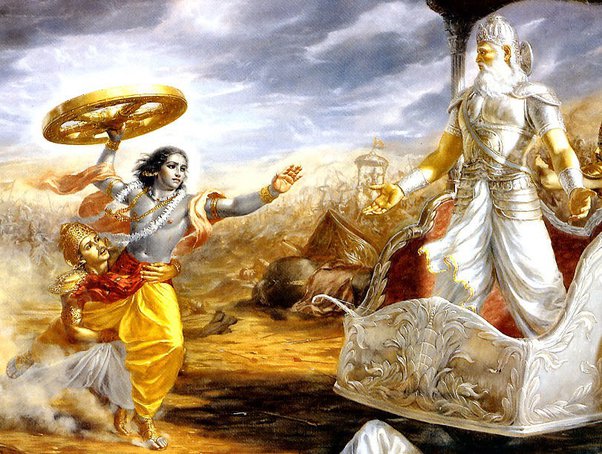
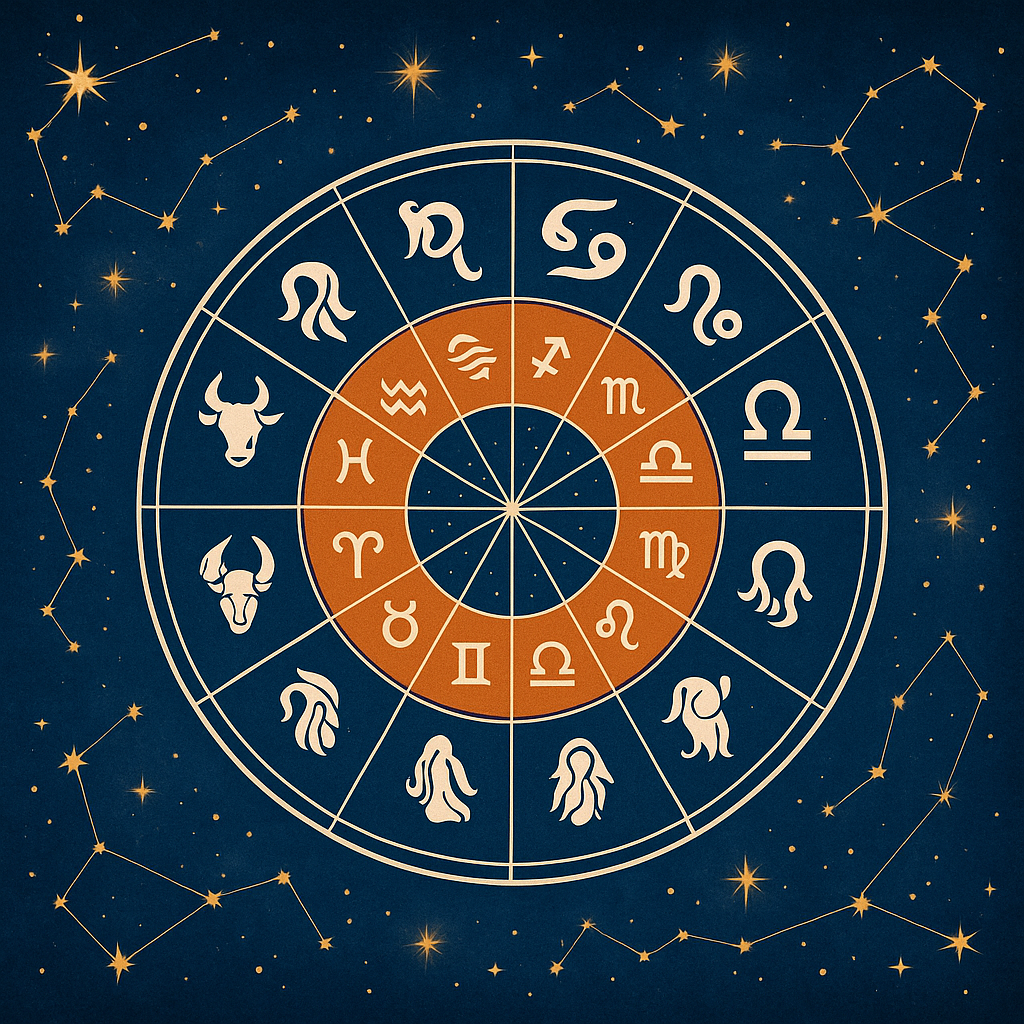
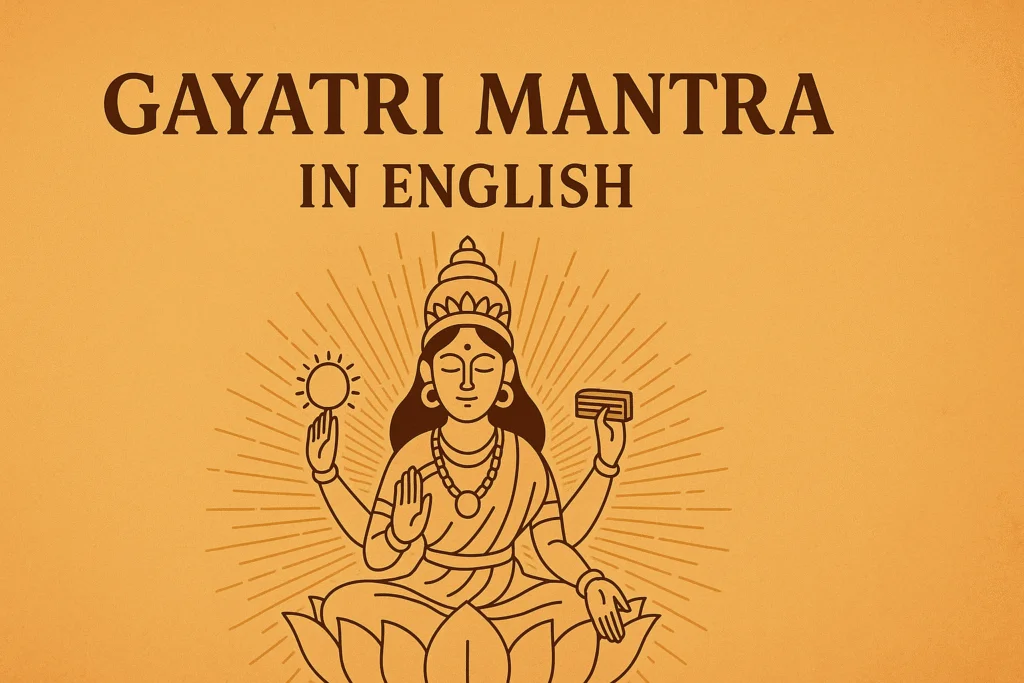


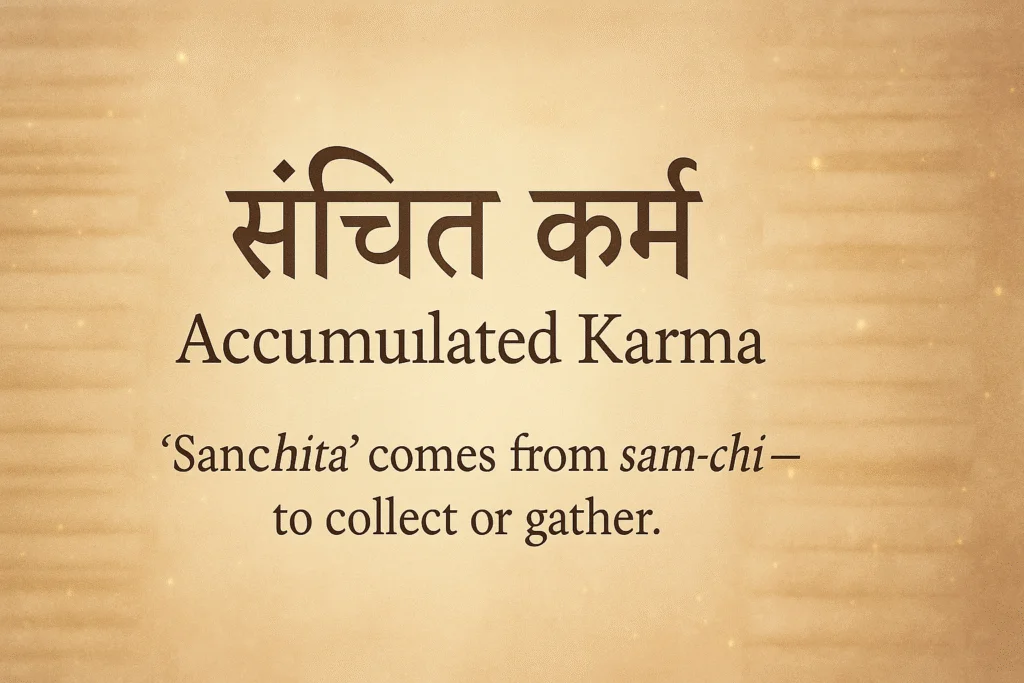
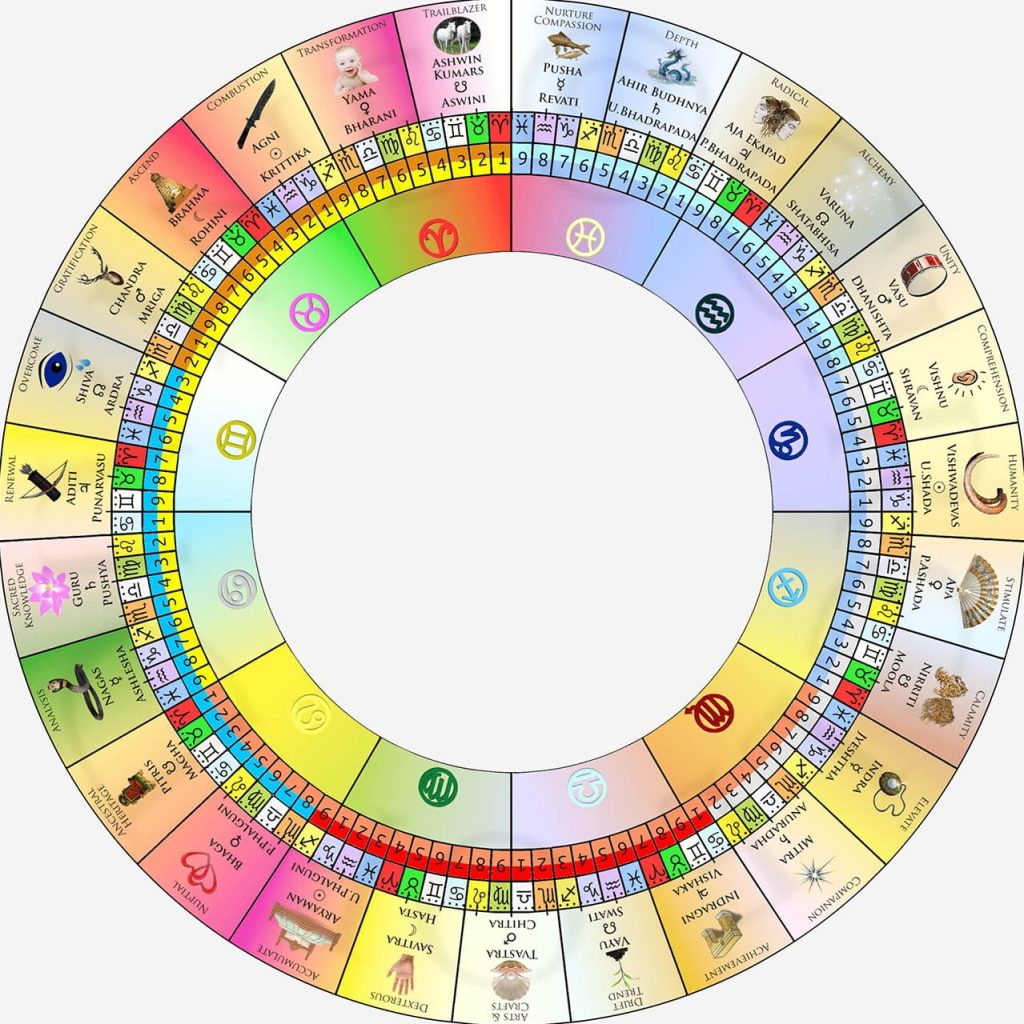
Leave a Reply